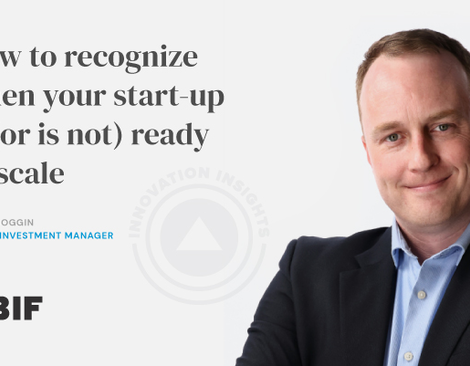- March 16, 2012
- Venture Capital
- Comments : 0
Breviro taking N.B. caviar to world
By Jennifer Campbell for the Telegraph-Journal | link to original article
16 Mar 2012 11:04AM
It’s a rare treat indeed. Until last year, its luxuriously creamy notes had not been tasted for 100 years. But now it’s being farmed, canned and sold across Canada and in pockets of Europe.
The product? Roe – in other, more marketing-friendly words, caviar – from the St. John River’s unique sturgeon. Fishing these sturgeon became impossible 45 years ago, at the same as they were listed as an endangered species. In Canada, they’re found in only one location: The St. John River system.
In 1997, a company called Supreme Sturgeon had acquired a special licence to retrieve 20 wild fish from the river and try farming them.
It grew the stocks to thousands, but, because you can’t harvest caviar until the fish are at least four years old – and, usually, closer to seven – the company collapsed under the strain of research and development without sales. Enter Jonathan Barry and a group of nine New Brunswick investors who bought up the stocks and launched Breviro Caviar.
Breviro is a finalist in the New Brunswick Innovation Foundation R3 Gala’s first Innovation Challenge. The foundation issued a provincewide call for proposals from established businesses with revenues of less than $20 million that have an idea but don’t have the resources, expertise and facilities to take action on it. The five finalists pitch to NBIF’s selection committee and two winners will receive $50,000 worth of research and development services at a post-secondary institution or a research organization in New Brunswick. The innovator will own the intellectual property that emerges.
Breviro’s proposal is to research and develop an aquaculture system and technique that would speed up the sexual maturation of sturgeon.
Over the 15 years that its sturgeon have been farmed, the company’s has been able to figure out how to breed the fish properly, determining which conditions work and which ones don’t. But the question Brevia wants to answer is how can the environment be optimized?
“That’s really what this innovation’s about. We want to do that in our local geography, which is native to the St. John River, but do it in a sustainable way with land-based aquaculture. We want to optimize the environment for temperature, oxygen, et cetera, so we get results that make us competitive worldwide,” Barry says.
Sturgeon are exotherms, so when they get into warmer water, “they grow like crazy,” he says. “Their metabolism speeds up and they grow really quickly. But you can’t overdo it either. There’s a delicate balance in there. You can’t mess around too much with nature, I guess, but there is an environment in which the fish really like to grow.
Sturgeon is a long-term investment indeed.
“It takes many years and multiple generations before you’re allowed to actually sell fish bred in captivity internationally,” Barry says, adding that his company is the only one on the planet that has a CITES (Convention on the International Trade in Endangered Species) licence for acipenser brevirostrum sturgeon.
“So we’re far enough along in those generations now to be able to meet all the requirements of the convention of international trade of endangered species. That’s why we’re now able to sell,” Barry says.
Breviro started selling in 2011 and considered it a trial year. Pleased with the results, the company is now marketing a bit more aggressively.
It has been selling in Canada’s bigger markets – Toronto and Montreal and, to a lesser extent, Vancouver – and went to the European seafood exposition last year. Because their species of sturgeon has been under the radar, thanks to its endangered status, Breviro had to “jump through a lot of hoops” to be able to sell in Europe and have just worked out those kinks.
“We’re just getting into the U.K. now,” Barry says, and adds that their distributor in the U.K. has some of her product – not theirs, just yet – selling in Harrods. “And we’re starting some things with Germany.
We’ve done some in Hong Kong.”
The product sells in 30-gram tins for a price of $100 (with preferential pricing for New Brunswick customers). The global price for caviar is between $3,000 and $4,000 per kilo.
It’s a prized delicacy, partly because of its rarity and that’s a reality for Breviro, but Barry says they were fortunate to have bought the business when the stock was reasonably mature so they have the luxury of having fish that are ready to go. At the same time, they are always spawning new fish.
And those who’ve been lucky enough to try Breviro’s product – unique in colour, which ranges from gold to olive to brown and tastes creamy, with a “Bay of Fundy terroir” according to those in the know – love it.
“The product lives up to the billing for its exclusivity,” Barry says.
“It’s very good. We’re focused on staying at the very high end.”


